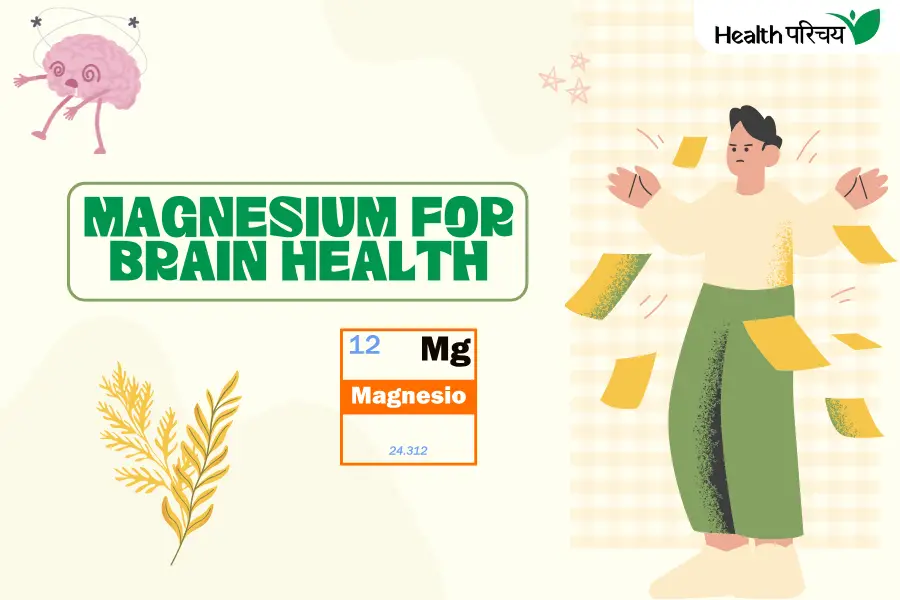Magnesium for Brain Health: Stress has become an unavoidable part of life, and many people experience it at least once in their lifetime. But did you know that a deficiency in magnesium might increase stress levels? If magnesium can truly reduce stress, it’s worth incorporating it into your diet. Let’s explore the science behind this essential mineral and its role in brain health.
Magnesium and Brain Health
Recently, magnesium supplements have gained popularity as a remedy for reducing stress, with several viral videos recommending their usage. But how true are these claims? According to doctors, magnesium plays a crucial role in reducing stress and supporting overall mental well-being.
Here’s how magnesium helps:
1. Regulation of Neurotransmitters

Magnesium aids in regulating neurotransmitters like serotonin, which directly impact brain function. Serotonin synthesis, supported by magnesium, helps lower stress and promotes a feeling of well-being.
2. Boosts GABA (Gamma-Aminobutyric Acid)

Magnesium enhances the activity of GABA, a neurotransmitter known for its calming effects on the brain. By reducing neuronal excitability, GABA helps manage stress and fosters relaxation.
3. Controls Stress Response

Magnesium is vital for maintaining the hypothalamic-pituitary-adrenal (HPA) axis, the body’s system for managing stress. It can lower the effects of cortisol, the stress hormone, allowing the body to handle stress more efficiently.
4. Relaxes Muscles

Tension in the muscles is a common physical symptom of stress. Adequate magnesium levels can alleviate muscle cramps, tension, and even stress-induced headaches.
5. Promotes Better Sleep

If insomnia is adding to your stress, magnesium-rich foods can help. Magnesium regulates melatonin, the hormone responsible for controlling sleep-wake cycles. Improved sleep quality can naturally lower stress levels.
6. Supports Heart Health

Stress often affects heart health. Magnesium helps regulate heartbeat and supports overall cardiovascular function, which is essential for reducing stress-related issues.
7. Enhances Overall Health

Magnesium deficiency can exacerbate stress levels. Consuming magnesium through food or supplements can help meet the body’s needs, improving general health and well-being.
Magnesium-Rich Foods to Include in Your Diet

Incorporating magnesium into your diet is simple. Leafy greens, nuts, seeds, whole grains, and legumes are excellent sources of this essential mineral. By ensuring you get enough magnesium daily, you can support your brain health and manage stress effectively.
Also Read: Does Eating Sugar Cause Diabetes? Experts Reveal the Truth About Sugar and Diabetes
- You Can Study Magnesium and the Brain Article In Depth From Here
Conclusion
Magnesium is undeniably a key nutrient for brain health and stress management. From regulating neurotransmitters to improving sleep and relaxing muscles, its benefits are backed by science. If you’re struggling with stress, consider including magnesium-rich foods in your diet or consult a healthcare professional about taking supplements.
With a balanced approach, magnesium can become your ally in achieving a calmer, healthier life.







Leave a Reply